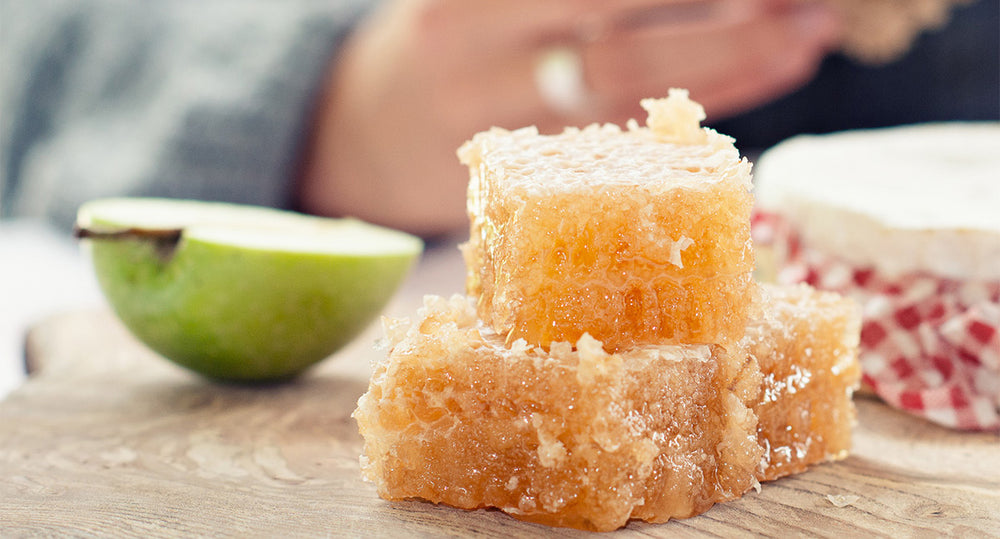Pasteurisation is a process that we normally associate with milk and dairy products. It removes bacteria from these foods and drinks, making them safer for us to consume (although it is possible to buy unpasteurised milk direct from some dairy farms).
Honey can also be pasteurised, but we believe that unpasteurised honey has greater health benefits over regular supermarket honey.
Honey doesn’t carry the same risk as milk in terms of potentially pathogenic bacteria and therefore doesn’t need to undergo the same rigorous processes as cows’ milk. That’s why we’re allowed to sell unpasteurised honey, but unpasteurised milk is only allowed for sale at the farmer’s gate and even then, with an understanding of the risks.
There are no such risks with unpasteurised honey. (But note that it’s unsuitable for infants under a year old.)
So let’s talk about the benefits of unpasteurised honey!
What is Unpasteurised Honey?
Unpasteurised honey is honey as pure as it comes from the hive. It’s had absolutely nothing added and nothing taken away.
As soon as the honey is removed from the hive, it’s ready to eat (after being passed over a fabric mesh to remove any unwanted bee parts or wax).
Necta & Hive honeys are all unpasteurised. They’ve had no heat treatment meaning that they’re ‘active’ honeys.
Active, unpasteurised honey keeps all of its natural antimicrobial enzymes intact, so it reaches you just as nature intended! All of the health and nutritional benefits we talk about are all related to unpasteurised, not pasteurised honey.
Why Should I Buy Unpasteurised Honey Over Pasteurised Honey?
Most of the honeys available in supermarkets have been pasteurised. Pasteurisation includes using heat treatments and commercial ultrafiltration processes to remove (harmless) yeasts and air bubbles.
But some pasteurised honey has other sugars and sweeteners added to it during the process, to make the honey cheaper to produce and cheaper to buy. Bona fide unpasteurised honey will never have such added ingredients.
Unpasteurised honey also retains its nutritional profile meaning that it’s rich in amino acids, vitamins, minerals and antioxidant polyphenols that help to keep the immune system healthy.
What’s more, unpasteurised honey retains its naturally occurring levels of bee pollen, which pasteurised honey doesn’t. Bee pollen is also a rich source of amino acids, healthy fats, vitamins and minerals. So much so, that some researchers “unequivocally recommend” bee pollen as a valuable dietary supplement.
Unpasteurised Necta & Hive Jarrah and Marri Wild Honeycomb
The pasteurisation process used in the production of mass produced honey makes it look more like the honey we’re used to seeing in the shops – clear and golden. It removes naturally occurring crystals, makes the honey smoother and allows it to sit on supermarket shelves and in our kitchen cupboards for longer.
But honey isn’t supposed to be processed for beauty standards, uniformity and shelf life! Honey is a natural product that is meant to look different from batch to batch and crystallise (a natural process caused by the natural glucose and water molecules separating).
So browse our collection of unpasteurised, natural healing honeys and enjoy!






